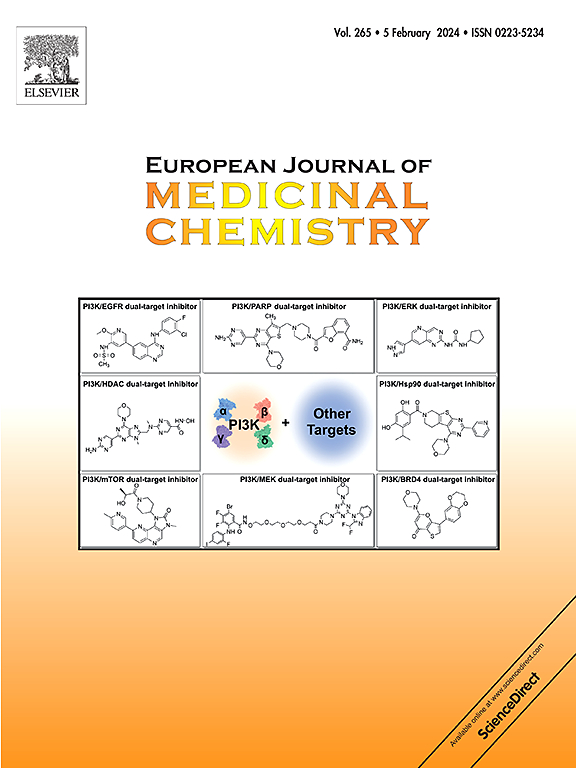Potential therapeutic targets of eukaryotic translation initiation factors in tumor therapy
IF 6
2区 医学
Q1 CHEMISTRY, MEDICINAL
引用次数: 0
Abstract
Translation initiation is the first and rate-limiting step in protein synthesis, and its dysregulation is frequently observed in various malignancies. Cap-dependent translation, the predominant form of translation initiation, relies on the coordinated action of eukaryotic translation initiation factors (eIFs), including eIF1, eIF2, eIF4, and others. These factors play critical roles in regulating the efficiency and fidelity of protein synthesis, and their overexpression has been linked to tumor progression, proliferation, and metastasis. Notably, certain eIFs have emerged as potential prognostic markers due to their elevated expression in tumors. Targeting eIFs represents a promising strategy, particularly for cancers characterized by aberrant eIF activity. In this review, we summarize the roles of individual eIFs in cap-dependent translation and discuss their potential as therapeutic targets in cancer treatment. We also highlight recent advances in drug discovery efforts aimed at modulating eIF activity, providing insights into the development of novel anticancer therapies.


真核翻译起始因子在肿瘤治疗中的潜在治疗靶点
翻译起始是蛋白质合成的第一步和限速步骤,在各种恶性肿瘤中经常观察到其失调。帽依赖性翻译是翻译起始的主要形式,它依赖于真核翻译起始因子(eIFs)的协同作用,包括eIF1、eIF2、eIF4等。这些因子在调节蛋白质合成的效率和保真度方面起着关键作用,它们的过表达与肿瘤的进展、增殖和转移有关。值得注意的是,由于某些eif在肿瘤中的表达升高,它们已成为潜在的预后标志物。靶向eIF是一种很有前景的策略,特别是对于以异常eIF活性为特征的癌症。在这篇综述中,我们总结了单个eif在帽依赖翻译中的作用,并讨论了它们作为癌症治疗靶点的潜力。我们还强调了旨在调节eIF活性的药物发现工作的最新进展,为新型抗癌疗法的发展提供了见解。
本文章由计算机程序翻译,如有差异,请以英文原文为准。
求助全文
约1分钟内获得全文
求助全文
来源期刊
CiteScore
11.70
自引率
9.00%
发文量
863
审稿时长
29 days
期刊介绍:
The European Journal of Medicinal Chemistry is a global journal that publishes studies on all aspects of medicinal chemistry. It provides a medium for publication of original papers and also welcomes critical review papers.
A typical paper would report on the organic synthesis, characterization and pharmacological evaluation of compounds. Other topics of interest are drug design, QSAR, molecular modeling, drug-receptor interactions, molecular aspects of drug metabolism, prodrug synthesis and drug targeting. The journal expects manuscripts to present the rational for a study, provide insight into the design of compounds or understanding of mechanism, or clarify the targets.

 求助内容:
求助内容: 应助结果提醒方式:
应助结果提醒方式:


